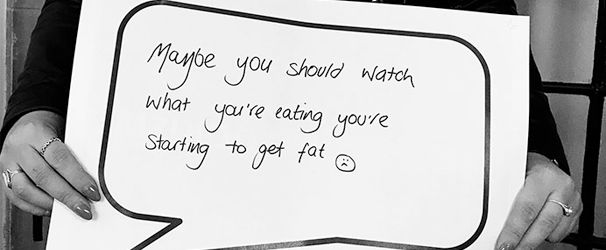Everyday lookism and the demands of beauty
 It is not ok to say negative things about other peoples’ bodies. Body shaming – whether it is fat shaming or highlighting other ‘bodily flaws’ – is never ok. In our visual and virtual culture our bodies are ourselves. When we shame bodies we shame people.
It is not ok to say negative things about other peoples’ bodies. Body shaming – whether it is fat shaming or highlighting other ‘bodily flaws’ – is never ok. In our visual and virtual culture our bodies are ourselves. When we shame bodies we shame people.
Executive summary
- Beauty has become an ethical ideal to live by and the moral pressure to ‘do’ beauty is growing. This has caused an epidemic of body image anxiety and should therefore be treated as an issue of public health, argues Professor Heather Widdows.
- The #everydaylookism campaign asks people to share their common experiences of facing prejudice on the grounds of their appearance. The aim is to get people talking about this issue and spreading the message that body shaming is never acceptable.
Background
The demand to be beautiful is increasingly important in today’s visual and virtual culture. Conforming to beauty ideals is becoming ever more demanding and defining of women, and increasingly men, irrespective of their professions. Rightly or wrongly, being perfect, or just good enough, has become an ethical ideal to live by, and according to which we judge ourselves good or bad, a success or a failure.
We are so used to people commenting on beauty that the harshness of their moral judgement can pass us by: you should ‘make the best of yourself’, you’re worth it, you deserve it and, whatever else you do, you should not ‘let yourself go’.
The moral pressure to ‘do’ beauty is growing. Increasingly being perfect – or trying to be – is what we value most. It is what we think about, talk about and what we spend our time and hard-earned cash on.
If we are good at beauty we feel we are good, virtuous, and if we are bad at beauty we feel we are no good almost no matter what else we do. In a very real sense our bodies are now ourselves. We might tell our daughters that “it’s what’s on the inside that counts”, but a look at the evidence tells us that they would not believe us.
Lead academic
Professor Heather Widdows, John Ferguson Professor of Global Ethics and Deputy Pro-Vice Chancellor Research (Impact)
Download the full briefing